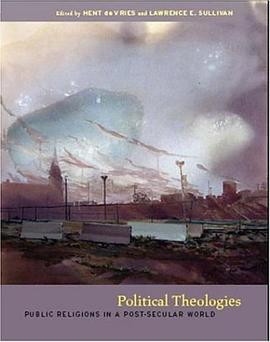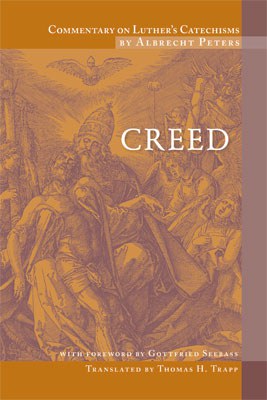

具体描述
William Tyndale published The Obedience of a Christian Man two years after he presented his 1526 English translation of the Bible, a forbidden undertaking, which eventually led to his execution. His vigorous, direct translation of the New Testament was intended to make it accessible even to the "boy that driveth the plough." In The Obedience of a Christian Man , he articulates his religious principles in what became one of the most important publications of the first phase of the English Reformation. He boldly develops the argument that ordinary believers should live directly according to Scripture without the intervention of worldly and often corrupt popes and prelates. This fine example of English prose raises, even today, powerful questions about the challenge of living a Christian life.
作者简介
WILLIAM TYNDALE was born in Gloucestershire in 1494. He spent over ten years at Magdalen Hall, Oxford, and may then have gone on to Cambridge. By the early 1520s Tyndale was back in Gloucestershire serving as tutor to the children of Sir John and Lady Walsh, for whom he translated Erasmus's Enchiridion.
===================================
William Tyndale (sometimes spelled Tindall or Tyndall; pronounced /ˈtɪndəl/) (c. 1494 – 1536) was a 16th-century Protestant reformer and scholar who translated the Bible into the Early Modern English of his day. While a number of partial and complete Old English translations had been made from the seventh century onward, and Middle English translations particularly during the 14th century, Tyndale's was the first English translation to draw directly from Hebrew and Greek texts, and the first to take advantage of the new medium of print, which allowed for its wide distribution. In 1535 Tyndale was arrested, jailed in the castle of Vilvoorde outside Brussels for over a year, tried for heresy and then strangled and burnt at the stake.
Much of Tyndale's work eventually found its way into the King James Version (or "Authorised Version") of the Bible, published in 1611, which, as the work of 54 independent scholars revising the existing English versions, drew significantly on Tyndale's translations.
Tyndale was born around 1494, possibly in one of the villages near Dursley, Gloucestershire. Within his immediate family, the Tyndales were also known at that period as Hychyns (Hitchins), and it was as William Hychyns that Tyndale was educated at Magdalen Hall, Oxford (now part of Hertford College, Oxford). Tyndale's family had migrated to Gloucestershire within living memory of his birth, quite probably as a result of the Wars of the Roses, and it is known that the family derived from Northumberland but had more recently resided in East Anglia. Tyndale's uncle, Edward, was receiver to the lands of Lord Berkeley and it is this fact that provides evidence of the family's origin. Edward Tyndale is recorded in two genealogies[1] as having been the brother of Sir William Tyndale, KB, of Deane, Northumberland, and Hockwald, Norfolk, who was knighted at the marriage of Arthur, Prince of Wales to Katherine of Aragon. Tyndale's family was therefore derived from Baron Adam de Tyndale, a tenant-in-chief of Henry I (and whose family history is related in Tyndall).
Tyndale was admitted to the Degree of Bachelor of Arts at Oxford University. In 1512, the same year he became a subdeacon. He was made Master of Arts in July 1515, three months after he had been ordained into the priesthood[citation needed]. The MA degree allowed him to start studying theology, but the official course did not include the study of scripture. This horrified Tyndale, and he organised private groups for teaching and discussing the scriptures[citation needed].
He was a gifted linguist (fluent in French, Greek, Hebrew, German, Italian, Latin, Spanish in addition to his native English) and subsequently went to Cambridge (possibly studying under Erasmus, whose 1503 Enchiridion Militis Christiani — "Handbook of the Christian Knight" — he translated into English). It is also believed that he met Thomas Bilney and John Frith at Cambridge[citation needed].
Tyndale became chaplain in the house of Sir John Walsh at Little Sodbury in about 1521, and tutor to his children. His opinions involved him in controversy with his fellow clergymen, and around 1522 he was summoned before the Chancellor of the Diocese of Worcester on a charge of heresy[citation needed].
Soon afterwards, he had already determined to translate the Bible into English: he was convinced that the way to God was through His word and that scripture should be available even to common people. Foxe describes an argument with a "learned" but "blasphemous" clergyman, who had asserted to Tyndale that, "We had better be without God's laws than the Pope's." In a swelling of emotion, Tyndale made his response: "I defy the Pope, and all his laws; and if God spares my life, I will cause the boy that drives the plow in England to know more of the Scriptures than the Pope himself!" [2][3]
Tyndale left for London in 1523 to seek permission to translate the Bible into English and to request other help from the Church. In particular, he hoped for support from Bishop Cuthbert Tunstall, a well-known classicist whom Erasmus had praised after working with him on a Greek New Testament. However the bishop did not highly regard Tyndale's scholarly credentials, was suspicious of his theology and like many highly-placed churchmen, was uncomfortable with the idea of the Bible in the vernacular. The Church at this time did not deem that a new English translation of Scripture would be helpful. Tunstall told Tyndale he had no room for him in his household.[4] Tyndale preached and studied "at his book" in London for some time, relying on the help of a cloth merchant, Humphrey Monmouth. He then left England under a pseudonym and landed at Hamburg in 1524 with the work he had done so far on his translation of the New Testament. He completed his translation in 1525, with assistance from Observant friar William Roy.
In 1525, publication of his work by Peter Quentell in Cologne was interrupted by anti-Lutheran influence, and it was not until 1526 that a full edition of the New Testament was produced by the printer Peter Schoeffer in Worms, an imperial free city then in the process of adopting Lutheranism.[5] More copies were soon being printed in Antwerp. The book was smuggled into England and Scotland, and was condemned in October 1526 by Tunstall, who issued warnings to booksellers and had copies burned in public[citation needed].
Following the publication of Tyndale's New Testament, Cardinal Wolsey condemned Tyndale as a heretic and demanded his arrest[citation needed].
Sculpted Head Of William Tyndale from St Dunstan-in-the-West Church London
Sculpted Head Of William Tyndale from St Dunstan-in-the-West Church London
Tyndale went into hiding, possibly for a time in Hamburg, and carried on working. He revised his New Testament and began translating the Old Testament and writing various treatises. In 1530, he wrote The Practyse of Prelates, opposing Henry VIII's divorce on the grounds that it was unscriptural and was a plot by Cardinal Wolsey to get Henry entangled in the papal courts. This resulted in the king's wrath being directed at him: he asked the emperor Charles V to have Tyndale apprehended and returned to England[citation needed].
Eventually, Tyndale was betrayed to the authorities. He was seized in Antwerp in 1535, betrayed by Henry Phillips, and held in the castle of Vilvoorde near Brussels.[6]
He was tried on a charge of heresy in 1536 and condemned to death, despite Thomas Cromwell's intercession on his behalf. He was tied to the stake, strangled, and his dead body then burnt. [7] Foxe gives 6 October as the date of commemoration (left-hand date column), but gives no date of death (right-hand date column).[6] The traditional date of commemoration is 6 October, but records of Tyndale's imprisonment suggest the date might have been some weeks earlier.[8]
Tyndale's final words, spoken "at the stake with a fervent zeal, and a loud voice", were reported as "Lord! Open the King of England's eyes."
Most well known for his translation of the Bible, Tyndale was an active writer and translator. Not only did Tyndale's works focus on the way in which religion should be carried out, but were also greatly keyed towards the political arena.
"They have ordained that no man shall look on the Scripture, until he be noselled in heathen learning eight or nine years and armed with false principles, with which he is clean shut out of the understanding of the Scripture."
In response to a critical John Bell[citation needed], Tyndale echoed this sentiment
"If God spare my life, ere many years I will cause a boy that driveth the plough shall know more of the Scripture than thou doest."
Year Printed Name of Work Place of Publication Publisher
1525 The New Testament Translation (incomplete) Cologne
1526* The New Testament Translation (first full printed edition in English) Worms
1526 A compendious introduccion, prologe or preface vnto the pistle off Paul to the Romayns
1528 The parable of the wicked mammon Antwerp
1528 The Obedience of a Christen Man[11] (and how Christen rulers ought to govern...) Antwerp Merten de Keyser
1530* The five books of Moses [the Pentateuch] Translation (each book with individual title page) Antwerp Merten de Keyser
1530 The practyse of prelates Antwerp Merten de Keyser
1531 The exposition of the fyrste epistle of seynt Jhon with a prologge before it Antwerp Merten de Keyser
1531? The prophete Jonas Translation Antwerp Merten de Keyser
1531 An answere vnto sir Thomas Mores dialoge
1533? An exposicion vppon the. v. vi. vii. chapters of Mathew
1533 Enchiridion militis Christiani Translation
1534 The New Testament Translation (thoroughly revised, with a second foreword against George Joye's unauthorized changes in an edition of Tyndale's New Testament published earlier in the same year) Antwerp Merten de Keyser
1535 The testament of master Wylliam Tracie esquier, expounded both by W. Tindall and J. Frith
1536? A path way into the holy scripture
1537 The byble, which is all the holy scripture Translation (only in part Tyndale's)
1548? A briefe declaration of the sacraments
1573 The whole workes of W. Tyndall, John Frith, and Doct. Barnes, edited by John Foxe
1848* Doctrinal Treatises and Introductions to Different Portions of the Holy Scriptures
1849* Expositions and Notes on Sundry Portions of the Holy Scriptures Together with the Practice of Prelates
1850* An Answer to Sir Thomas More's Dialogue, The Supper of the Lord after the True Meaning of John VI. and I Cor. XI., and William Tracy's Testament Expounded
1964* The Work of William Tyndale
1989** Tyndale's New Testament
1992** Tyndale's Old Testament
Forthcoming The Independent Works of William Tyndale
* These works were printed more than once, usually signifying a revision or reprint. However the 1525 edition was printed as an incomplete quarto and was then reprinted in 1526 as a complete octavo.
** These works were reprints of Tyndale's earlier translations revised for modern-spelling.
=================================
威廉·廷代尔(又译廷岱勒、丁道尔、丁铎、廷德尔)(William Tyndale,1494?–1536年),是16世纪著名的基督教学者和宗教改革先驱,被认为是第一位清教徒,英国宗教改革家和《圣经》译者。在廷代尔的时代,罗马天主教教廷只允许拉丁文圣经,不容许私自翻译,并且只有神职人员可以拥有和诠释圣经。廷代尔却主张应该让普通老百姓都可透过读圣经来认识神,决心把圣经译成英文,于是被诬陷为异端。
廷代尔出生于英格兰的格洛斯特(Gloucestershire),曾就读于牛津大学和剑桥大学,读书期间成为一名牧师。约1522年,他着手将《新约圣经》从希腊文翻译成英文。然而,他的这项工作遭到了英国教会官员的反对,他们认为只有神职人员才可以阅读《圣经》。1524年,廷代尔离开英国去往德国,之后在马丁 路德(Martin Luther)门下受教,并且继续翻译《圣经》。
1525年,尽管罗马天主教百般阻挠,但廷代尔还是在德国的沃尔姆斯出版了完整的《新约圣经》。后来,他又出版了《旧约圣经》前五卷(1530年)和《约拿书》(1531年)的英文译本。此外,廷代尔还写过一些支持新教教义的书籍。1535年,他被神圣罗马帝国的代理人以异端罪名逮捕入狱,最后被处以绞刑,他的尸体被焚烧于火刑柱上。2002年,廷代尔被英国广播公司选为最伟大的100名英国人。
目录信息
读后感
评分
评分
评分
评分
用户评价
说实话,初捧此书时,我内心是带着一丝怀疑的,毕竟这个题目听起来就带着浓厚的说教意味,我担心这又是一本陈词滥调的复读机。然而,出乎意料的是,作者以一种近乎冷峻的散文笔法,描绘了信仰的实践如何在日常生活的细枝末节中显现出来。他的叙事风格是如此的克制和内敛,却又蕴含着强大的情感张力。你不会在其中找到激昂的赞美诗或者戏剧性的故事,更多的是对个体在面对时代洪流时的内心挣扎的细腻刻画。尤其是在探讨社群与个体责任的章节,作者的洞察力如同手术刀般精准,他揭示了当“集体”的旗帜被举起时,个体良知的微妙退缩。这本书的语言本身就是一种艺术品,它没有使用过于华丽的辞藻,但每一个动词和形容词的选择都恰到好处地烘托出一种沉静而坚韧的力量感,仿佛在低语中蕴含着千钧之力。读完后,我感觉自己仿佛经历了一场漫长的、无声的洗礼,世界并没有改变,但我的观看世界的方式却发生了微妙的位移。
评分如果让我用一个词来形容这本书带来的体验,那大概是“质询”。它不提供简单的答案,而是系统性地对你既有的认知体系进行全方位的审问。作者的文风带着一种古老的、近乎先知式的权威感,但这种权威并非来自强制,而是源于其论证的无懈可击。他擅长在看似对立的概念之间架设桥梁——比如自由与约束、个人与律法——并展示它们如何在一个更高的统一性中得以调和。在阅读过程中,我能清晰地感受到一种构建宏大体系的努力,他试图用一种连贯的、自洽的框架来解释人类精神生活的复杂性。这本书的排版和分段也颇具匠心,长篇的段落保证了思绪的连续性,那些关键的转折点往往出现在段落的末尾,像一个精心布置的钩子,让你无法抗拒地翻到下一页。这绝对是一部需要被反复研读、并伴随着笔记和高亮标记才能真正消化的作品。
评分这部作品的魅力,在于它拒绝简化人性。许多同类型的著作为了追求传播效果,往往会把复杂的道德困境简化为黑白分明的对立面,但《虔诚者的顺服》却完全反其道而行之。作者似乎热衷于挖掘那些灰色地带,那些令人感到不安但又无比真实的张力点。他的笔触是如此细腻,以至于在描述一个看似微不足道的日常行为时,都能从中洞察出深刻的伦理学含义。我特别喜欢他对于“责任的重量”的阐述,那种将个体的每一个选择都置于永恒的尺度下衡量的视角,瞬间让日常的琐碎变得庄严起来。这本书的语言节奏是缓慢而庄重的,它要求读者放慢呼吸,去品味词语背后的历史沉淀和思想重量。这不是一本能让你在通勤路上轻松读完的书,它需要一个安静的、不受打扰的环境,让你能够完全沉浸在那股强大的、内向的思辨洪流之中,体会那种将自我置于更高标准下的审视与敬畏。
评分这本《虔诚者的顺服》简直是场思想的马拉松,读完之后,我感觉自己的精神世界被狠狠地地毯式轰炸了一遍,那种冲击力,绝不是那种轻飘飘的励志小册子能比拟的。作者在构建他的论点时,那种步步为营的逻辑推演,让人不得不佩服其学识的渊博和思辨的严谨。他似乎没有刻意去迎合任何主流的解读,反而像一个冷静的解剖学家,将信仰的核心概念一层层剥开,直视其最底层的结构。我特别欣赏他对“顺服”这个概念的重新定义,它不再是盲目的听从或压抑自我的妥协,而是一种基于深刻理解和自由意志的选择。这种选择,反而成为了一种更高层次的自由。阅读过程需要极大的专注力,因为它充满了对历史背景、哲学流派的引用和交织的论证,很多时候我需要停下来,反复咀嚼那些复杂的句子,才能真正捕捉到作者抛出的每一个细微的差别。这本书的价值在于,它迫使你放下预设的框架,重新审视自己与更高力量之间的关系,那种自我审视的痛苦与随之而来的清晰感,是其他任何读物都难以给予的体验。
评分这本书给我的感觉,就像是走进了一座古老而巨大的图书馆,里面的书架高耸入云,空气中弥漫着纸张氧化的味道。它不是一本供人消遣的书,更像是一份严肃的学术邀请函,邀请你一同参与一场关于存在本质的辩论。作者的行文节奏把握得极为巧妙,他知道何时该加快速度,抛出震撼性的观点,也知道何时应该放慢脚步,用一长串排比句来描绘某种难以言喻的精神状态。我发现自己经常会因为一个突然冒出来的类比或一个历史典故而被深深吸引,以至于不得不暂时放下主线,去追溯那个隐藏在脚注或括号里的信息源头。这种阅读体验是互动的,它激发了我强烈的求知欲,去探索那些我原本认为与我无关的知识领域。对于那些寻求精神深度而非表面安慰的读者来说,这本书无疑是提供了一张通往更深层次思考的地图,只是这张地图的绘制过程本身就充满了艰辛与挑战。
评分 评分 评分 评分 评分相关图书
本站所有内容均为互联网搜索引擎提供的公开搜索信息,本站不存储任何数据与内容,任何内容与数据均与本站无关,如有需要请联系相关搜索引擎包括但不限于百度,google,bing,sogou 等
© 2026 book.wenda123.org All Rights Reserved. 图书目录大全 版权所有




















